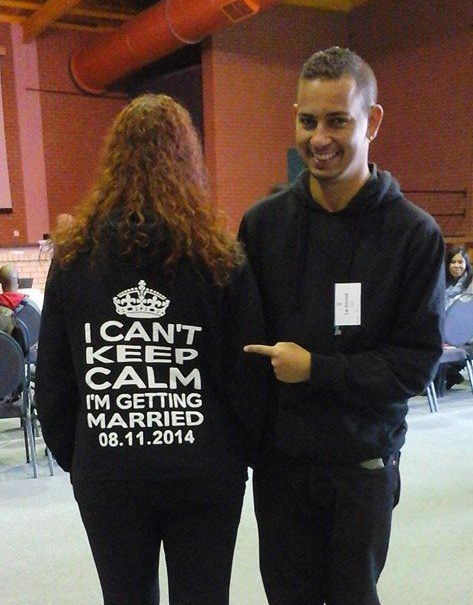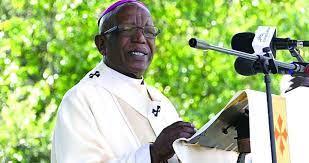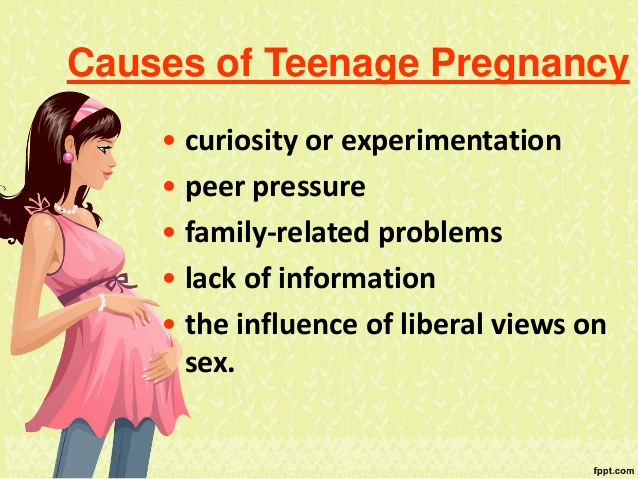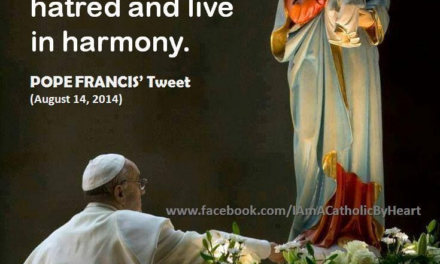PARENTING TEENS AND TEEN PARENTS

The topic of teenage pregnancy is almost always addressed from the perspective of statistics and as a serious problem, mostly for the young girls. A recent WHO report notes that 1 in 4 teenagers in South Africa is likely to be pregnant before she turns 20. Seldom is the male partner mentioned. Is it a school, church, social or family issue and what are we as Catholics offering as meaningful options? I believe that the reality should be unpacked more comprehensively for concerted and collaborative efforts to be made in this complex situation, something which is not the case at present.

Archbishop Buti Tlhagale in his homily at AMOF, the Archdiocesan Meeting of Families held on 24 June at Bosco Youth centre, addressed two major areas of concern; marriage and youth. Reporting on the bishops’ 5 yearly ad limina visit to Rome he referred to different Vatican offices for reporting and updates on their local situations. They received input too and he spoke at some length about the need to strengthen marriages, effective marriage preparation and stronger commitment of couples to their relationship.
On the issue of youth he began by quoting the high number of teen pregnancies as a serious problem. He challenged the youth saying, “What are you after, don’t you have dreams and ambitions? Why cut your future short, can’t pleasure wait?” Using hard-hitting words he said, “a child normally is a blessing, but at your age it is a curse, a burden. It is not your job to fill the world with children.”
But what is being done and still to be done? While we, as families, appreciate the points the Archbishop made it should also be acknowledged that those involved in marriage and family ministry and youth work are actively doing their best, but often with very limited resources and inadequate support from our church leadership. Only today I read a tweet stating that every parish needs to have a Caritas group. OK, but we believe every parish should have a marriage and family team and various programmes such as Marriage Encounter, Teams of Our Lady, Retrouvaille, Catholic Engaged Encounter, MARFAM, Couples for Christ, Focolare New Families, Theology of the Body and related groups addressing pornography. These should be working together under the SACBC and dioceses and have priest involvement too. CoLA, Divine Mercy Home for unmarried mothers, Pro-life or anti-abortion resources need support. Love Matters by the Salesians is a powerful youth resource and no doubt the 1000 youth who will be participating in World Youth Day in Portugal soon will benefit from the evangelization and catechesis to guide their future. Government Departments of Social Development, Education and Health play a major role.
But to return to the specific topic of teen pregnancy. It involves both females and males. Pregnancy is not opportunistic like COVID, it is the result of an act and most likely not a one-off act. It is known that young people at school are sexually active, teachers are involved, girls have boyfriends older than themselves, even mature blessers or sugar-daddies, who provide them with money and luxuries.
The role of parents needs to be considered. The Archbishop mentioned people should read AMORIS LAETITIA, Pope Francis’ document on marriage and the family. The Chapter on Sexuality Education is rich in information on a necessary approach. “Sex education can only be seen within the broader framework of an education for love, for mutual self-giving. The sexual urge can be directed through a process of growth in self-knowledge and self-control capable of nurturing valuable capacities for joy and loving encounter. The information has to come at a proper time and in a way suited to their age. It is not helpful to overwhelm them with data without also helping them to develop a critical sense in dealing with the onslaught of new ideas and suggestions, the flood of pornography and the overload of stimuli that can deform sexuality. Frequently sex education deals primarily with protection, through the practice of safe sex that conveys a negative attitude.

No matter how hard parents, educators and catechists try to promote a positive attitude, pregnancy is still all too common. Society offers the major causes as :
- Lack of information about sexual and reproductive health and rights.
- Inadequate access to services tailored to young people.
- Sexual violence, coercion from male partner.
- Child, early and forced marriage, which can be both a cause and a consequence.
- Poverty, lack of education or school drop-out.
Is warning them of the consequences a sufficient deterrent? Consider the effects of teenage pregnancy on the mother
It leads to a number of negative outcomes. These include increased risk of maternal mortality, poor educational attainment, and poor health outcomes for both mother and child. Additionally, teenage pregnancy often results in poverty and social exclusion for both. In order to address these social problems, it is important to provide support to teenage mothers. What about the father? Programmes do exist to assist young girls and boys to be involved with the care of the baby and for young fathers to bond with their child. This aspect is most often neglected and both the boy and the child suffer from this loss.
Some moving quotations should be taken to heart. “The pro-life movement is considering adoption, foster care and celebrating birth mothers.” From American Media. “It is hard not to have conflicted feelings about a child’s birth mother. But once there is a child involved, his or her welfare and flourishing has to come first.” That ultimately must be the family’s responsibility. FAMILY MATTERS WEEKLY E-NEWSLETTER







Recent Comments